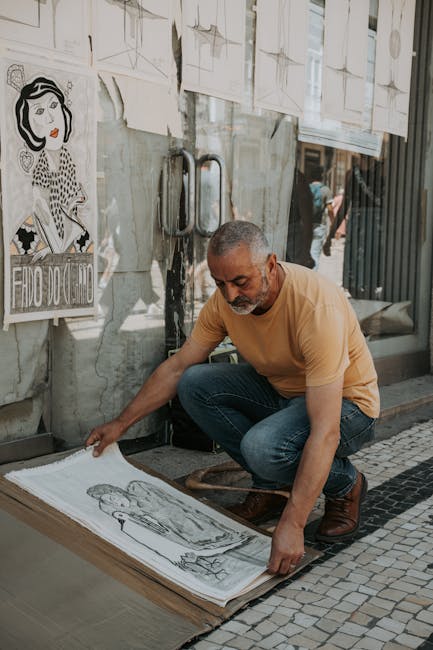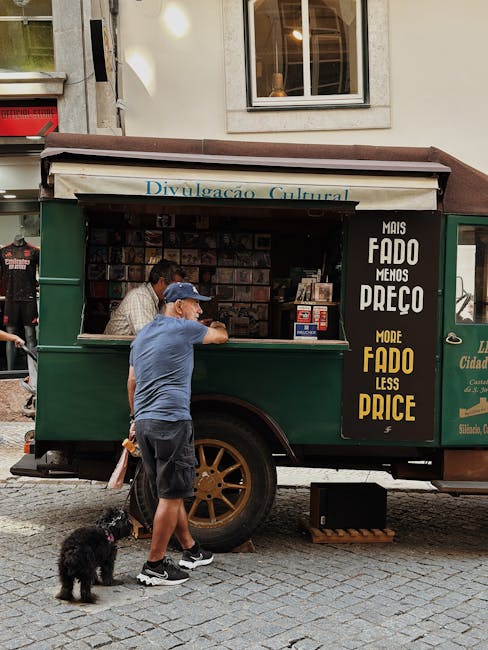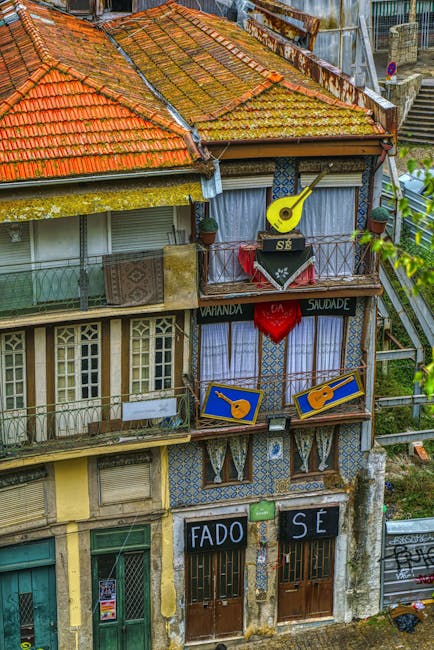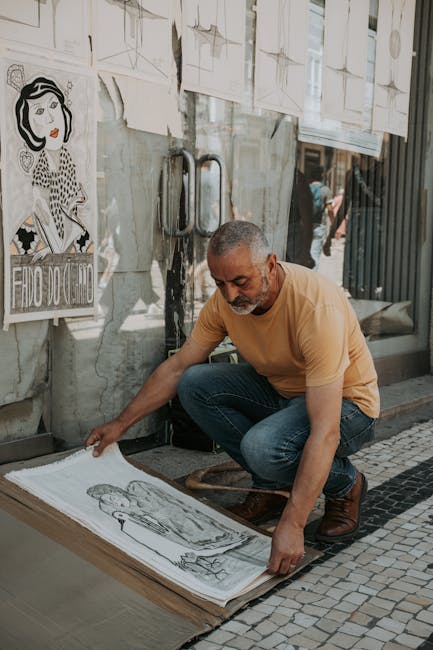A Journey into the Heart of Fado
Fado, the melancholic and deeply emotional music of Portugal, is more than just a genre; it’s a cultural phenomenon, a reflection of the nation’s history, struggles, and unwavering spirit. Born in the impoverished Alfama district of Lisbon, fado’s haunting melodies and poignant lyrics tell stories of love, loss, longing, and the sea – themes that resonate deeply with the Portuguese soul. This exploration delves into the rich tapestry of fado, examining its origins, evolution, iconic artists, and enduring legacy.
The Origins and Evolution of Fado
Pinpointing the exact birth of fado is challenging, shrouded in the mists of time and legend. However, most scholars trace its roots back to the 18th and 19th centuries, emerging from the marginalized communities of Lisbon. Early forms of fado were likely influenced by various musical traditions, including Moorish, African, and Brazilian influences, all woven into the fabric of Portuguese identity. The melancholic melodies, often accompanied by the Portuguese guitar, viola, and classical guitar, created a uniquely poignant sound that quickly captivated listeners.
Initially associated with the lower classes, fado gradually gained popularity among broader segments of society. The late 19th and early 20th centuries saw fado houses, or casas de fado, spring up across Lisbon, becoming important social hubs. These establishments provided a stage for aspiring fado singers, allowing them to share their talents and stories with a captivated audience. The evolution of fado continued, with different styles and subgenres emerging, each with its own unique characteristics and interpretations.
The Golden Age of Fado
The mid-20th century witnessed the golden age of fado, characterized by the emergence of iconic artists who shaped the genre’s trajectory. Names like Amália Rodrigues, considered the “Queen of Fado,” became synonymous with the art form, captivating audiences worldwide with their powerful vocals and deeply emotional performances. Rodrigues’s contribution to fado’s global recognition is undeniable, transcending cultural boundaries and introducing the world to the genre’s raw beauty and emotional depth. Other notable figures, such as Alfredo Marceneiro and Fernanda Maria, also played significant roles in establishing fado’s reputation as a powerful and emotive musical expression.

The Instruments of Fado
Fado’s unique sound is inseparable from the instruments used to accompany its melancholic melodies. The Portuguese guitar, with its distinctive six-stringed construction and melancholic timbre, forms the foundation of many fado arrangements. Its intricate techniques and expressive capabilities allow for both delicate arpeggios and powerful, resonating chords, perfectly mirroring the emotional depth of the fado lyrics. The viola, a slightly larger instrument similar to a guitar, adds a deeper, more resonant tone to the ensemble, creating a rich harmonic backdrop for the singer’s vocals.
In addition to the Portuguese guitar and viola, the classical guitar often joins the ensemble, providing a richer and fuller sonic tapestry. The combination of these three instruments creates a distinctive fado sound, each instrument playing a crucial role in creating the genre’s unique emotional atmosphere.

The Lyrical Heart of Fado
The lyrics of fado songs, often referred to as letras, are integral to the genre’s emotive power. These lyrics often explore themes of love, loss, longing, and nostalgia, reflecting the experiences and struggles of everyday life. The poetic nature of the lyrics, combined with the evocative melodies, allows fado to connect with audiences on a deeply personal and emotional level. Many fado lyrics are infused with the imagery of Lisbon’s historical neighborhoods, evoking a sense of place and time that resonates deeply with Portuguese identity.
The themes of saudade, a Portuguese word that encompasses a profound sense of longing and melancholic nostalgia, often permeate fado lyrics. This powerful emotion is expressed through the music, creating a deeply moving and resonant experience for the listener. The lyrics frequently evoke images of the sea, reflecting Portugal’s long maritime history and its impact on the national psyche.

Modern Fado and its Global Reach
While rooted in tradition, fado continues to evolve and adapt to contemporary influences. Modern fado artists are experimenting with new sounds and styles, blending traditional elements with contemporary musical genres, while preserving the core essence of the genre. This fusion creates a vibrant and dynamic sound that appeals to both traditional fado enthusiasts and new listeners.
Fado’s global reach has expanded significantly in recent decades, with artists performing and gaining recognition worldwide. Fado festivals and concerts are held internationally, introducing the genre to a broader audience and fostering a greater appreciation for its unique qualities. The increasing global interest in fado reflects a growing recognition of the genre’s emotive power and cultural significance.
Famous Fado Singers and Their Contributions
- Amália Rodrigues: Often hailed as the Queen of Fado, her unparalleled voice and emotional depth defined an era.
- Alfredo Marceneiro: Known for his smooth baritone voice and elegant stage presence, he brought a unique sophistication to fado.
- Fernanda Maria: Her powerful and passionate vocals made her a beloved figure in the fado world.
- Mariza: A contemporary artist who has modernized fado while preserving its essence, bridging the gap between tradition and innovation.
- Camané: Known for his distinctive vocal style and innovative arrangements, he represents a new generation of fado artists.
Experiencing Fado: A Cultural Immersion
To truly appreciate fado, experiencing it live in a traditional casa de fado is essential. The intimate atmosphere, combined with the powerful performances, creates an unforgettable cultural experience. The emotional intensity of the music, coupled with the evocative lyrics, transports listeners to the heart of Portuguese culture. Immerse yourself in the ambiance, allowing the melancholic melodies to wash over you, and you’ll understand why fado holds such a significant place in the hearts of the Portuguese people and beyond.
Conclusion: The Enduring Legacy of Fado
Fado is more than just music; it’s a testament to the resilience and emotional depth of the Portuguese people. Its melancholic melodies and poignant lyrics tell stories of love, loss, and longing, echoing through generations and transcending cultural boundaries. From its humble beginnings in the Alfama district to its global recognition, fado’s journey reflects the enduring power of music to capture the human experience and share stories across time and space. As fado continues to evolve and adapt, its legacy remains intact – a soulful soundscape that speaks to the heart of Portugal and the world.

